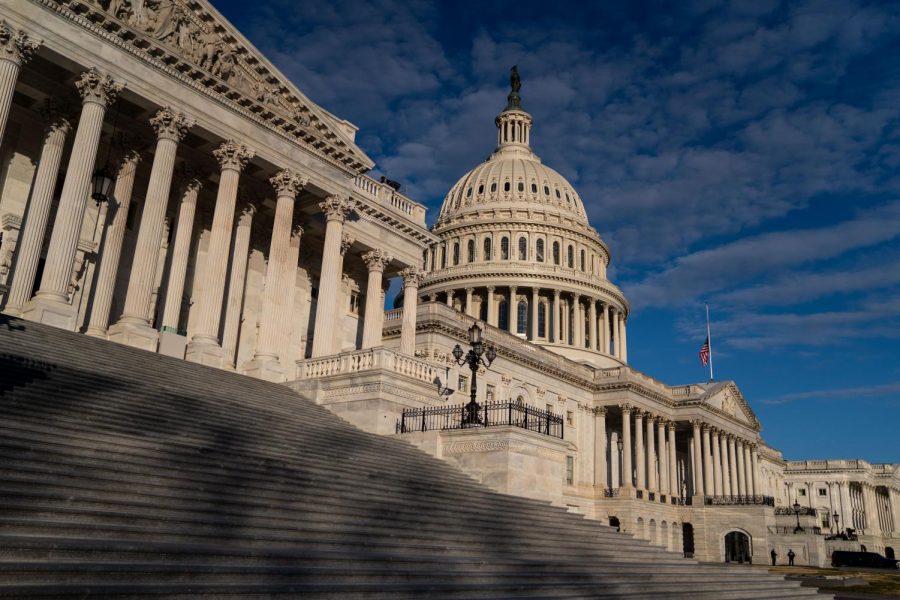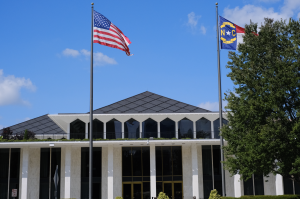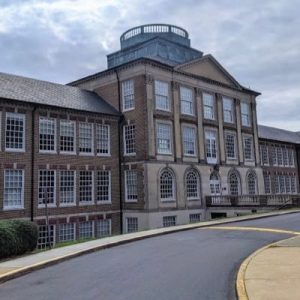Pandemic response shows healthy democracy
U.S. government response shows prioritization of decentralized decision-making
Washington’s lawmakers have been working overtime to pass legislation and economic packages designed to be beneficial for Americans negatively effected by the pandemic.
March 4, 2021
As this month marks roughly the one-year point since the United States’ coronavirus response, it is important that we reflect on the past events and analyze them so that we can better understand how to confront issues of this magnitude in the future. Tragically, over half a million Americans have lost their lives amid the global pandemic. In the face of such a sorrowful reality, it is difficult to consider this result as anything but horrific. Out of respect for their lives, however, we must find the strength to separate ourselves from these intense feelings of grief so that we can adequately evaluate this reality from an objective standpoint. In doing so, one can accurately identify both the positive and negative attributes of our collective pandemic response so that the United States is best equipped to respond to other black swan events in the future.
In looking at the general response towards combating the coronavirus, one cannot help but be struck by the lack of efficiency regarding a unified response on a national level. While considering this apparent fragmentation, one is led to consider two central questions.
First, why was there not a more effective response? Additionally, does this lack of a centralized approach point towards the existence of a healthy republic?
I propose that our domestic failure to implement any sort of sweeping national response serves as a positive indication that the federalist principles on which this nation was founded still have a profound influence on the way the United States functions. The separation of power between the state and federal governments, combined with the United States’ traditional respect for individual liberties and freedoms, is directly responsible for the latency which we have all experienced over the last year.
To best understand this perceived positivity towards the United States’ pandemic response, one must consider the ramifications if opposite actions had taken place. What if the entire country had been forced to wear a mask, quarantine, stay home and abide by all COVID-19 regulations under the threat of severe legal repercussions imposed by the federal government? Imagine if the national guard set up strategic checkpoints to ensure one was not traveling unnecessarily and, if individuals found to doing so, they were sent to jail. Consider a reality in which measures as extreme as these were implemented across the country overnight. COVID-19 rules would be the gospel, and any divergence from them would be taken as an offense punishable by the full force of the law.
Without a doubt, that situational response would have yielded an effective result that might have eradicated the virus in a timely and efficient manner. But, had those measures been implemented, what might such measures indicate about the condition of our liberties?
The answer is rather obvious: we would not have any. While the direct, short-term result might have allowed for the coronavirus to be defeated, the larger ramifications would have been anything but good. If the nation had acted as described in that hypothetical, the reality would be quite grim. Had the federal government taken such action, this would show that citizens, communities and states are not truly in possession of the agency to evaluate issues on their own and respond as they see fit.
That said, I would like to urge readers to reconsider how they view our current state, while also acknowledging the egregious human loss which we have endured as a people. The past year has shown that our local institutions and the individuals who comprise them still hold the fundamental right to act on their own accord without authoritarian intervention from the federal government. We don’t live in a totalitarian state where vast changes can be made overnight and regulations imposed at whim. Even if those rules and punishments are designed with the common good in mind, the slope of that type of swift action grows quite slippery if localized choice is eliminated. The democratic republic in which we live was intentionally designed to be slow-moving and thorough to foster deliberation and to protect the thoughts of the individual.
To use an analogy, the delicate nature of freedom under government can be best compared to the flame on top of a candle. That candle is being carried by a person who is, symbolically, the federal government. If that person responsible for keeping the candle burning decides to run too quickly or jerks around on a whim then, poof, the flame of liberty goes out.
It is with that image in mind that one can begin to understand how the past year can be considered beneficial. You must first acknowledge the individual agency within an organized society to be of importance. As we evaluate and consider the nature of our collective response and plan for the future, we must think about what options can be employed so that we are best able to handle national crises while simultaneously protecting the critical individual freedoms that have made the United States a symbol of hope around the world.












